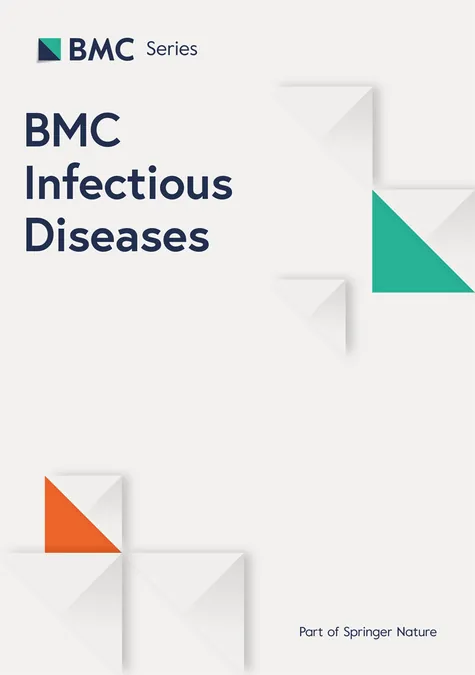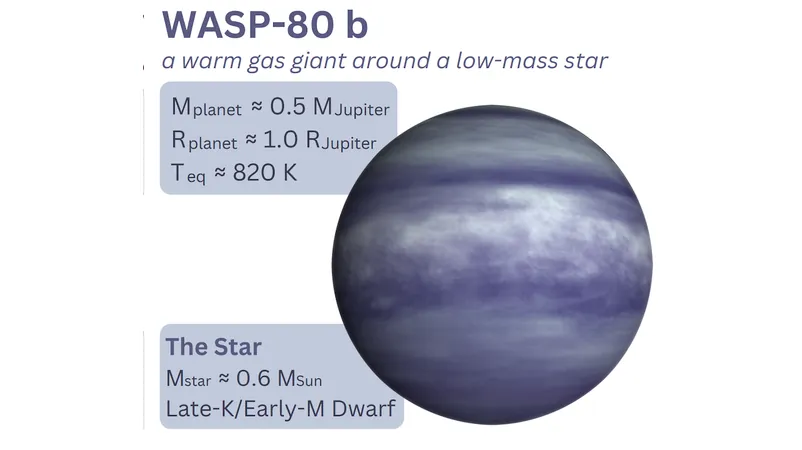
Unpacking the COVID-19 Vaccine Dilemma Among Moroccan Immigrants in the Netherlands: Insights from a Qualitative Study
2025-04-25
Author: Daniel
Understanding the Study Design and Participants
In an illuminating qualitative study conducted between April and June 2022, researchers delved into the decision-making processes surrounding COVID-19 vaccinations among Moroccan immigrants in the Netherlands. Through semi-structured interviews, the study aimed to explore diverse perceptions from both first- and second-generation immigrants aged 16 and older.
Diverse Recruitment Strategies
Participants, encompassing a wide range of ages, genders, and education levels, were recruited via various channels, including a private Facebook group, community centers, and mosques. The recruitment continued until a diverse sample was achieved, ensuring that no new themes emerged in the interviews.
Crafting the Interview Guide
The interview guide was meticulously developed, drawing from extensive research and established behavioral models, like the Health Belief Model and Protection Motivation Theory. This guide included open-ended questions on perceptions of COVID-19, vaccine experiences, and areas for better information.
Rich Data Collection Process
Interviews were conducted primarily by a Moroccan-Arabic speaking researcher, using a mix of Dutch and Moroccan-Arabic. Lasting an hour on average, these interviews were recorded and transcribed, providing a wealth of insights into participants' feelings and thoughts.
Insights from the Interviews
A total of 29 individuals were interviewed, with 66% vaccinated. Key themes emerged regarding vaccination decisions, including fluctuating attitudes over time, personal risk assessments over social responsibilities, and a desire for trustworthy information. Many voiced skepticism regarding the vaccine's safety and effectiveness, influenced by both anecdotal experiences and perceived societal pressures.
Shifting Attitudes Toward Vaccination
Participants reported drastic changes in their feelings about the vaccine throughout the pandemic. Initially, many embraced the vaccine as a way out of the crisis, then shifted to skepticism driven by a perceived lack of transparency from authorities.
Personal Decision-Making vs. Social Responsibility
The vaccination decision was largely described as an individual risk-benefit analysis rather than a collective responsibility. Many participants expressed that their health status, experiences with COVID-19, and observed vaccine effects in their social circles led to their decisions.
Tangled Emotions and Regrets
Feelings of regret surfaced frequently. Some who chose to vaccinate later questioned their decisions, influenced by negative experiences or perceived ineffectiveness of the vaccine. On the other hand, some regretted not vaccinating after experiencing severe COVID cases.
The Role of Information Sources
Participants frequently cited the Dutch National Institute for Public Health as a key source of information, alongside social media and community recommendations. However, many also expressed distrust in government communication, seeking more transparent, less contradictory information.
Community and Family Influence
The social environment played a dual role in the vaccination decision. Participants often consulted family and friends about their choices, but many felt pressured to align their decisions with their social circle.
Religious Beliefs as a Motivating Factor
Religion significantly influenced decision-making processes. Many participants viewed vaccination as a health obligation supported by their faith, while others expressed fatalism, believing their fates were predetermined regardless of vaccination.
Recommendations for Future Strategies
The study highlights the necessity for tailored communications and public health strategies aimed at immigrant populations. Recommendations include incorporating culturally relevant messaging, ensuring transparency in information, and engaging community leaders to foster trust and understanding of vaccination.
Conclusion
This groundbreaking study shines a light on the complexity of vaccination decisions among Moroccan immigrants in the Netherlands, emphasizing the interplay of personal beliefs, community influences, and the critical need for trustworthy communication. The results can enhance future vaccination campaigns targeting diverse populations.





 Brasil (PT)
Brasil (PT)
 Canada (EN)
Canada (EN)
 Chile (ES)
Chile (ES)
 Česko (CS)
Česko (CS)
 대한민국 (KO)
대한민국 (KO)
 España (ES)
España (ES)
 France (FR)
France (FR)
 Hong Kong (EN)
Hong Kong (EN)
 Italia (IT)
Italia (IT)
 日本 (JA)
日本 (JA)
 Magyarország (HU)
Magyarország (HU)
 Norge (NO)
Norge (NO)
 Polska (PL)
Polska (PL)
 Schweiz (DE)
Schweiz (DE)
 Singapore (EN)
Singapore (EN)
 Sverige (SV)
Sverige (SV)
 Suomi (FI)
Suomi (FI)
 Türkiye (TR)
Türkiye (TR)
 الإمارات العربية المتحدة (AR)
الإمارات العربية المتحدة (AR)